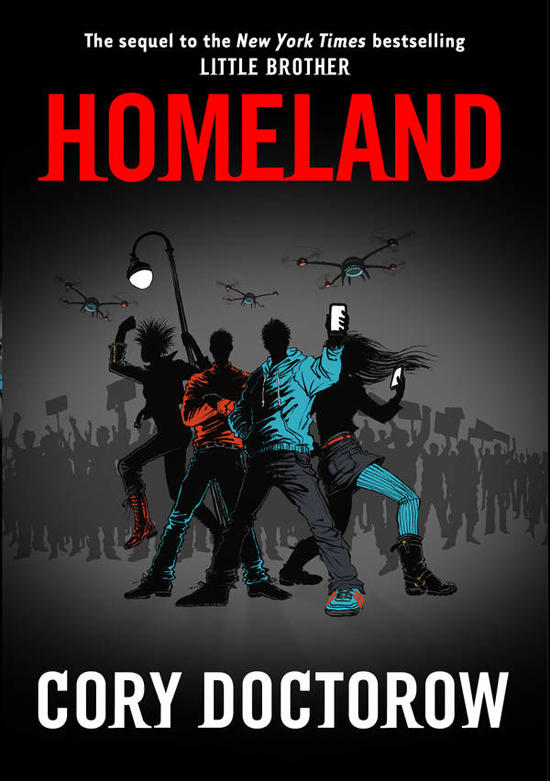
NEW SG Interview: Cory Doctorow –– Homeland1
Posted In Blog,Books,Entertainment,Geek,Internuts,Interviews

“Scholarship is inherently not a market activity.”
– Cory Doctorow
Cory Doctorow has made me wait almost a year to read Homeland, the much-anticipated sequel to Little Brother, his opus on civil rights and protest in the digital age. With not one but two Doctorow novels, Pirate Cinema and Rapture of the Nerds (which was co-authored with Charles Stross), already on the release schedule for 2012, Homeland has had to loiter in the wings for a 2013 publication date. But the wait has been well worth it. Homeland is a beyond worthy successor to Little Brother.
The highly prophetic novel, which was first published in 2007, is now regarded as a contemporary classic. As such, Little Brother is required reading in many of our more progressive schools, and has even been turned into a “must see” stage play –– hence Homeland has quite a legacy to live up to.
When I last sat down with Doctorow –– for an interview specifically about Little Brother –– on January 4th, 2012, Obama had just signed the National Defense Authorization Act (NDAA) for Fiscal Year 2012 into law. With the stroke of our President’s pen, yet another of the central themes of Little Brother –– unlimited military detention without trial –– had become fact rather than fiction.
In Homeland (which Doctorow had finished writing a few days prior to our first meeting), we return to the Little Brother universe a year and a half after the last novel left off. In the intervening months, austerity has choked the life and soul out of America, and our hacktivist hero Marcus Yallow has quit his studies, having been forced out of university by financial pressures and burgeoning student debt.
The action kicks off at Burning Man, where Marcus has an unexpected encounter with his sometime ally Masha, and their nemesis Carrie Johnstone. Masha, who is on the run from just about every law enforcement agency you can name (and a few that you can’t), hands Marcus an insurance policy in the form of a key to an encrypted torrent file which contains a treasure drove of highly sensitive data. Her subsequent disappearance prompts Marcus to set up a WikiLeaks-like site, an endeavor which is made all the more complicated by conflicts of interests that arise from his new job as a tech guru for an independent political candidate.
Meanwhile Johnstone has given up her position in the military for a lucrative job in the private sector with a Halliburton type entity that has tentacles embedded in the government, military, and the increasingly lucrative (and corrupt) student loan market. It’s therefore no surprise that Johnstone and her corporation, Zyz, are the subject of much of Masha’s leaked data, and a cat & mouse game ensues involving lawful interception, rootkits, and drones. It’s not all doom and gloom though, and at one point during the breakneck-paced plot, Marcus (and Doctorow vicariously through him) gets to sit down and have a Mini Dungeon adventure with Electronic Frontier Foundation founders John Perry Barlow, John Gilmore and Mitch Kapor, with uber geek Wil Wheaton acting as Dungeon Master.
Having read an advance copy of Homeland, I met up with Doctorow at his North London workspace to question him about it. As I make myself comfortable on his couch and set up my digital recorder on the coffee table next to his well-thumbed copy of the RAND Corporation’s 1955 book A Million Random Digits with 100,000 Normal Deviates, the Canadian-born writer and Boing Boing editor does something quintessentially English by offering me a cup of tea. Normally this would be more than acceptable, but having been tempted by the delights of cold-brew coffee –– Marcus’ hi-octane beverage of choice which fuels much of Homeland –– I can’t help feeling a little disappointed that Doctorow didn’t have a batch on the go…


[…] Posts SG Interview: Cory Doctorow — Homeland SG Interview: Cory Doctorow — Homeland Part 2 Excerpt From Rapture of The Nerds SG Interview: […]